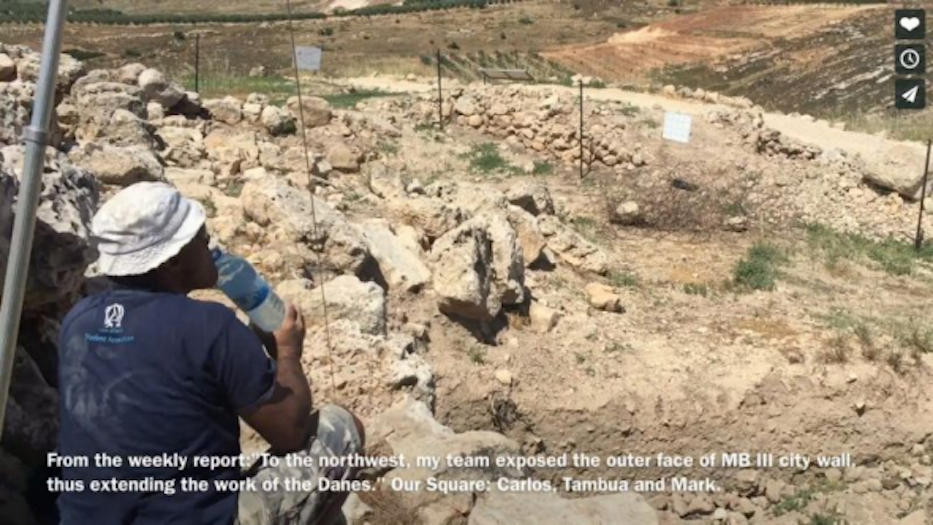Archaeologists in Palestine trying to find evidence that the Bible is also a history textbook may have discovered more clues for the Ark of the Covenant while digging at the Shiloh excavation in the West Bank.
The researchers are trying to prove that the Bible also holds revelations about humanity’s past, The Times of Israel reported.
READ: Did Archaeologists’ Discovery of 3,000-Year-Old Donkey Dung Just Help Prove Biblical History?
In the Bible, Shiloh is mentioned as the site where the Ark and the Tabernacle – the earthly dwelling place of God – were worshipped for nearly four centuries.
The excavations, which have been taking place for more than 10 years, are “encouraging” but not “remotely definitive,” the archaeologists reported.
“Because of their intrinsic value, scholars say, these vessels could indicate the site was vacated in an abrupt manner, as described in the Bible. Additionally, the archaeologists found a kobaat, a goblet or ritual chalice, which could be linked to religious use,” according to the article.
However, the excavations have not yet provided definitive evidence that biblical artifacts were held at the site.
The team has a strong religious faith that sets them apart from typical diggers, said Scott Stripling of the Associates of Biblical Associates, adding that they are “taking the Bible as a serious historial document.
“There are some who say the Bible is unreliable,” he said. “We have found it to be very reliable.”
In the Psalms and in the book of Jeremiah, the Bible states that Shiloh was destroyed when the Israelites were defeated from the Philistines, who also stole the Ark of the Covenant.
The discovery of 10 pottery jars could provide evidence for the destruction, said Hanina Hizami, a coordination officer for archaeology at the Civil Administration.
“This is a very exciting find,” Hizami said. “The destruction could have been caused by the Philistine invasion and the fire that raged at Shiloh.”
Separately, archaeologists from France and Israel have been searching for the Ark at the site of Kiryat Ye’arim outside Jerusalem, which is thought to be one of the last remaining unexplored sites in the region.
(H/T: The Times of Israel)


